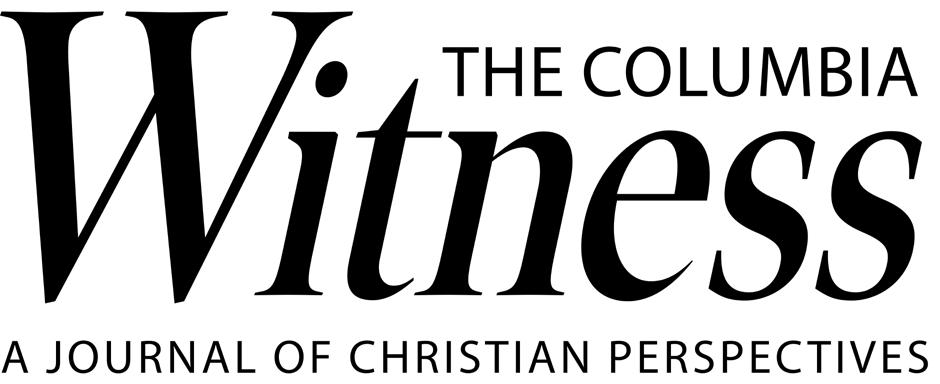
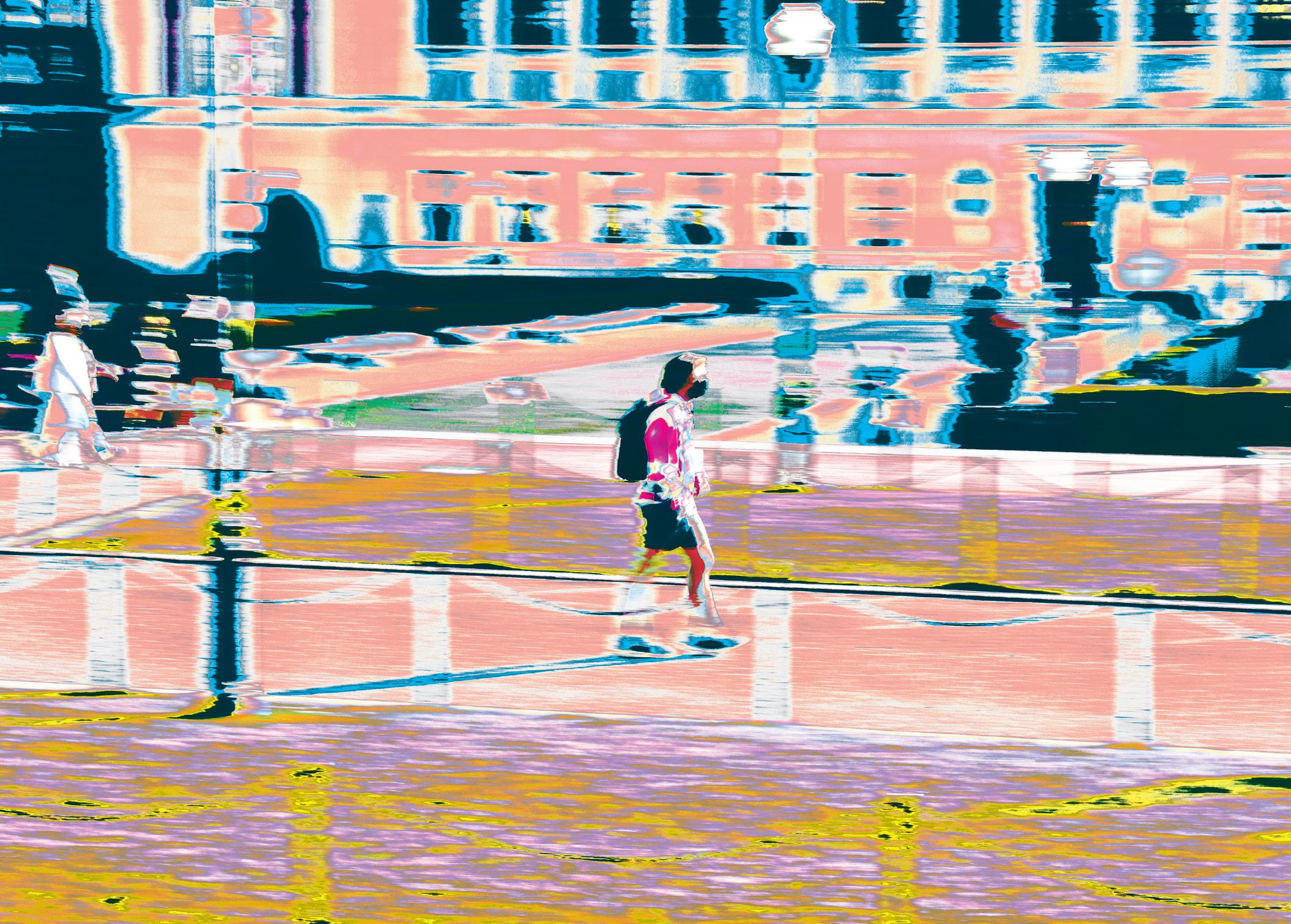

In Ordinary the Fall 2022 Vol. 9, No. 2
OUR VISION
2 | vol. 9, no. 2
A campus that witnesses the subversive person of Jesus and accepts the reality of the Gospel.
OUR MISSION
To proclaim the life and power of God's truth to the Columbia community and beyond through diverse Christian voices and ideas.
The Witness | 3
4 | vol. 9, no. 2 Table of Contents 06 The Walk Victoria Choe 07 The College Walk of Faith Timothy Kinnamon 11 Lessons I Learned as a College Student Daniel Lee 21 Neither Wish Nor Wishful Thinking Benjamin Brake 18 Faith Will Find a Way Jerry Robbins 15 Reconciliations from a CC Essay Jean Shin 26 Lilies of the Field Grace-Elleda Gonzalez 28 How to be the GOAT at Columbia Chase Chumchal
EDITOR IN CHIEF
Elizabeth Huang
MANAGING EDITOR
Ben Kelley
PRINT HEAD
Victoria Choe
BLOG HEAD
Dorothy Zhang
DESIGN HEAD
Annie Son
WEB HEAD
Mandy Jenkins
PODCAST HEAD
Ardaschir Arguelles
SOCIAL MEDIA HEAD
Natalia Espinoza
PRINT
Annie Son | Benjamin Brake
Benjamin Kelly | Chase Chumchal
Jean Shin | Tony Kim
BLOG
Ashley Kim | Michael Manasseh
Gustavo Isaac Alcantar
DESIGN
Dorothy Zhang | Lucy Collins
Michael Manasseh | Tony Kim
PODCAST
Director: Ardaschir Arguelles
Contributors:
Joel Kattady | Rory Wilson
Technician: Jonah Dewing
Producer: Natalia Espinoza
Design and Editing:
Lucy Collins | Silas Link
Dear Reader,
Every day we wake up. Cross Low Steps on the way to class. Grab a quick lunch from Ferris. Finish the final lecture of the day. Break up pomodoros of studying in Butler with social media scrolls and dinner. Complete tomorrow’s assigned reading and begin next week’s problem set. Sleep. Repeat. And so the Columbia student routine goes.
Everyone is given 24 hours in a day, and when checking off repetitive tasks and usual events of daily life, it can be easy to fall into a mindless rhythm. However, even in the uneventful, there are still blessings to be found. There is nothing more regular than walking to the library, but paying attention makes it possible to spot daily beauties: the brightly-lit trees, a couple playful dogs dashing across the lawn, someone ahead holding the door open. All of these little bits of happiness are part of God’s creation and reflect the love and joy found in Jesus Christ. In addition to the Bible, God can speak through these everyday circumstances. Listening for God’s voice during periods of stillness, like waiting in the grocery line or folding laundry, can be the moments when we feel His presence the most.
In this issue, we explore what it looks like to meet God in life’s ordinary moments. You will find personal reflections, poems, and theological essays that touch on quiet practices of faith and seemingly mundane acts. From a fifteen minute stroll across College Walk to a late night of studying for Advanced Programming, our hope is to share how the smallest instants and quotidian events can bring about the greatest transformation. We pray that you, our reader, may find joy and fulfillment in the ordinary. May this journal be an encouragement to you.

God Bless,
Elizabeth Huang
Fall 2022
Cover art by Annie Son
The Witness | 5
The Walk
Victoria Choe
I lie down and sleep; I wake again, because the Lord sustains me.
Psalm 3:5
Iam walking from Riverside Park, up the steep incline that Shake Shack sits atop, along with the lineup of cars so imperfectly parallel parked.
Up the slope is the halal cart to signal that I’m almost reaching the end of the block. The Shake Shack on the other side of the street and bikers criss-crossing pedestrians, their hands in ginormous mitten-like gloves, and their Grubhub insulated boxes linked to the back wheels of their bikes. I catch up to the woman in front of me, who is on a stroll with her Bichon puppy who is miserably trying to pee with its head in a cone. Approaching me is an older lady with one of those shopping carts filled with groceries. I see her see the poor Bichon, a smile creeping up to her face as she strolls forward, craning her neck until the Bichon is out of sight and she can’t continue looking while walking. The view has passed, but she’s still smiling.
It makes me smile to see another person smile because they’ve found something so endearing, so sweet –
I look down to check my watch: 4:20. Ten more minutes until the Zoom meeting. About a solid five minutes to jaywalk this intersection as the light turns yellow, and I enter College Walk briskly walking past the tourists and their selfies and their craning necks,

eyes gazing towards the height of these trees and the blooming cherry blossoms. Cherry blossoms? The flowers are cherry blossoms right?
Once I’m past the trees, I’m right between that sweet spot where it feels like the whole world is watching me – the Sundial and the steps. Tunnel vision tunnel vision tunnel vision. But I make eye contact with someone from my LitHum class. Or at least I think I did. Maybe they didn’t recognize me because class was online anyway. Maybe they didn’t see me. Maybe it’s not them in the first place because I highly doubt they are actually that tall in real life.

to hitch a ride on.
Enter, Butler Library, wait for the beep of the Wave ID and funnel in behind a line of students, shoulders slouched with the weight of their backpacks. We all scan our IDs even though the security guard has their eyes closed.

Trying to find a room in 202 sometimes feels like finding a seat in John Jay Dining Hall between 5pm and 7pm.
But I do, and it’s because the person who was at my desk before just left, and I know this because the seat is a little too warm.
4:29. And of course I give it about 20 seconds before I log into my laptop, and right at 4:30 I hit “Launch meeting.”
The person behind me is on the phone with their ex. The person next to me is eating a cheese stick the completely wrong way. (You peel it not bite it.) And somewhere off at the table ahead is a group of lacrosse players laughing at some sort of TikTok about Euphoria. I can hear Cassie screaming.
How much has happened in these past fifteen minutes. So many sights, smells, and sounds. So many second guesses and worries, every little moment and step it took to get to this place, in my seat in Butler in front of a laptop screen as I listen to my professor talk about everything and nothing at the same time.
How many more fifteen minutes will fill the rest of my day, how many more of these tiny little moments that never fail to impress make me wonder – if only I would stop for a moment and look at all of this goodness and find it so filling and sweet.
6 | vol. 9, no. 2
Victoria Choe (CC‘24) is a junior in Columbia College studying History. Contact her at vc2562@columbia.edu.
Photos by Annie Son.
4:23. Make a right, down the steps, past the strollers and screaming babies and barking dogs that might be as small as those mini croissants they serve for breakfast in Ferris or big enough for me
The College Walk of Faith
It was about a mile-long, gravel driveway connecting the main road to the wood cabin that I called home.
Continuing past the cabin it also connected to the main house farther down and the chicken coops at the edge of the wood. It was the College Walk of the chicken farm that had become Columbia University for four young undergraduates during the pandemic. It bore all the traffic into and out of the farm, hosted daily walks for me and my friends, provided a safe path on cold winter mornings as I hauled a day’s worth of logs for the cabin’s wood stove. On any night at least two of us would use it to gather for dinner either in the cabin or the main house. It was safe for delivery trucks, pickup trucks, sedans, the golf carts used for the farm’s daily operations, and both bipedal and quadrupedal traffic (the farm had several dogs). It was on this gravel path that I learned to walk, much like how an infant learns to walk.
By the time you reach college, most of your mental energy does not go into thinking about walking. On campus,

we designate a destination (usually the sixth floor of Hamilton if you are a Classics student like me), assess when we need to be there, and schedule our departure accordingly. The time we spend in transit usually consists of banal music—if you are one of those types—or either a thoughtless or thoughtful survey of the campus buildings along our route, perhaps mingled with a casual wave at the rare sighting on a close friend. None of these were true on the gravel drive: Class was always on my computer at my desk, and when I was walking to the main house I was far more likely to encounter a dog than any of the other bipedal residents. Nonetheless, I found myself walking often, yet rarely to get somewhere.
Instead, those walks were what I have decided to call a physical manifestation of a spiritual reality. The religious life is often called the “walk of faith,” blending the images of journey and activity.1 On my gravel-drive walks I learned to walk this walk “by faith, not by sight.” Which is not to say
The Witness | 7
1 2 Corinthians 5:7.
Timothy Kinnamon
that I closed my eyes and hoped I would stay safely on the road (and on my feet, for that matter), but that the eyes of my heart were opened as I turned towards a spiritual destination in place of a physical one.

It might be odd to think of a physical activity having a non-physical function, but I think the philosophers have long known this trick with walking. Aristotle’s followers were famously called peripatetic because they walked around during his lectures. Other notable walkers in the Core Curriculum include Rousseau, Kant, and Nietzsche. Say what we might about their philosophies, all four of these thinkers have had profound impacts on the development of thought. Frederic Gros has a recent book called The Philosophy of Walking where he explores these thinkers and what they have to say about walking. However, I want to briefly explore here not the philosophy, but the mysticism of walking.
The Old Testament scriptures make clear that we are blind walkers. The book of Proverbs testifies that “the heart of man plans his way, but the Lord estab-
lishes his steps” (Proverbs 16:9) and that “a man’s steps are from the Lord; how then can man understand his way?”2 Similarly, Jeremiah proclaims, “I know, O Lord, that the way of man is not in himself, that it is not in man who walks to direct his steps.”3 The consistent picture is that, though man is the walker, God determines his path, such that man is blind to his own direction. No matter how hard we try to determine our own steps or order our own life, it is up to God where we end up. Through this logic we are blind because, though we are the ones living our lives, we are not the one’s deciding its exact course.
Yet the same scriptures clarify that we can attain sight of our path through God’s instruction. Psalm 119 continues the walking metaphor, declaring, “Blessed are those whose way is blameless, who walk in the law of the Lord!” and, “Your word is a lamp to my feet and a light to my path.” Psalm 32 adds God’s promise: “I will instruct you and teach you in the way you should go; I will counsel you with my eye upon you.” Since
2 Proverbs 20:24.
3 Jeremiah 10:23.
God is the one who determines our path and orders our steps, it is only through Him that we can come to know where we are headed. The Bible is presented as the guide to walking with sight, as literally a light that forces away our blindness as we see where God is leading us. However, I think that this metaphor of walking is slightly more nuanced than the last, in that the Bible is not a guide for walking any particular path in life (that might answer questions like: Should I go to grad school? Who should I marry? Who should I vote for?). Instead, the Bible is a guide for walking these particular paths in accordance with a spiritual path of righteousness. When viewed from this lens, our blindness is not just an inability to see God’s direction in our physical lives, but also in our spiritual lives.
The Old Testament continues by showing the causal connection between spiritual and physical blindness. Psalm 82 describes the wicked as having “neither knowledge nor understanding, they walk about in darkness.” God also describes His command to Israel thus: “‘[W]alk in all the way that I command you, that it may be well with you.’ But
8 | vol. 9, no. 2
they did not obey or incline my ear, but walked in their own counsels and the stubbornness of their evil hearts, and went backward and not forward.”4 These passages show the results of spiritual blindness, that a failure to discern and abide by God’s law leads to a failure to comprehend the world and progress within it.
Paul revolutionizes this framework in the New Testament when he commands: “Walk by the Spirit…If we live by the Spirit, let us also keep in step with the Spirit.”5 This is the “spirit of faith” by which we “do not lose heart” as we “look not to the things that are seen but to the things that are unseen[, which]… are eternal.”6 The Spirit gives us eyes to see the unseen, so that we are, as it were, blind to the things that are seen. For, as God told Samuel, “Do not look on his appearance or on the height of his stature, because I have rejected him. For the Lord sees not as man sees.”7 This is not to say that God does not see the physical reality, but that He sees be-
4 Jeremiah 7:23-24.
yond the physical reality, whereas man naturally only sees the physical.
This logic flips the Old Testament’s use of “blind walking.” Whereas the Old Testament focused on our physical blindness as a result of our spiritual blindness, Paul argues that we must choose physical blindness in order to have spiritual sight. But how does this work exactly? Left with just the law, we never turn the lamp on, so to speak, to see our path. Left to our own devices, the Bible stays an unlit lamp, or one that we always leave behind. It takes the Holy Spirit, who directs our sight away from our physical path and towards our spiritual destination, Christ, to lead us to even pick up that lamp or light it. When we focus, in our strength, on gaining physical and spiritual sight, we always fail. But as we surrender to the Spirit, we lose sight of the physical in comparison to the “surpassing worth of knowing Christ Jesus.”8 It is through this that we begin to “walk not according to flesh but according to the Spirit.”9 But, paradoxically, when we become blind to our
8 Phillippians 3:8.
9 Romans 8:4.
physical path in this way, it is then that we can see it. For it is then that we delight in God’s spiritual instruction enough to be able to see where He leads us.
Therefore, the spiritual truth playing out during my walks in Kentucky was a learning of physical blindness. I had nowhere to turn on my physical path except down the gravel road, and nowhere to turn in my spiritual path except towards God, and so I often found myself speaking to God as if He were walking on the gravel beside me. And soon I realized that it was not as if He were beside me, but that He literally was. I had to look beyond the physical, and not just beyond the gravel drive lined with trees and shrubbery; I had to look beyond the farm, beyond Zoom, beyond the pandemic, Columbia, my life and birth—and beyond it all was God. He was beside me not just on the drive, but every step in my life, and even before I learned to walk as an infant. And once I saw God there, leading me the whole time to see Christ, and focused my sight on Christ, then I grew blind to my physical walk—not perfectly, but significantly. It mattered far less where

The Witness | 9
5 Galatians 4:16, 25.
6 2 Corinthians 4:13.
7 1 Samuel 16: 7.
I was and where my life was headed. I was spiritually walking, surrendering to His plan for my life, focusing on His direction, praising His glory, and the path was set before me in the same way that the gravel drive was.
I think it is important to point out that I do not believe I gained this insight simply from more time for prayer or meditation—important as those are and were. Rather, I think my walking on the drive was an analogue for my spiritual walk that produced important connections, blind as I was to them at the time. I continue to take random, meaningless physical walks (though not quite as often) where I lose sight of a physical destination and continue to play out my spiritual surrender. These “strolls” I take for no apparent reason, except that I almost always feel a deep itch to get closer to God. It is not that walking in this way brings me closer to God per se, but that when I use the analogue and surrender—even as Christ— to the will of the Father and delight in Christ our King, then I more easily play out the spiritual surrender.10 And it is then that I am truly walking.

10 | vol. 9, no. 2
10 Cf. Jesus’ prayer in the garden; Matthew 26:39, Mark 14:36, Luke 22:42, John 6:38.
Timothy Kinnamon (CC’23) is a double major in Classics and Political Science. He loves to consider political philosophy from a Biblical perspective. Contact him at tmk2144@ columbia.edu
Lessons I Learned As A College Student
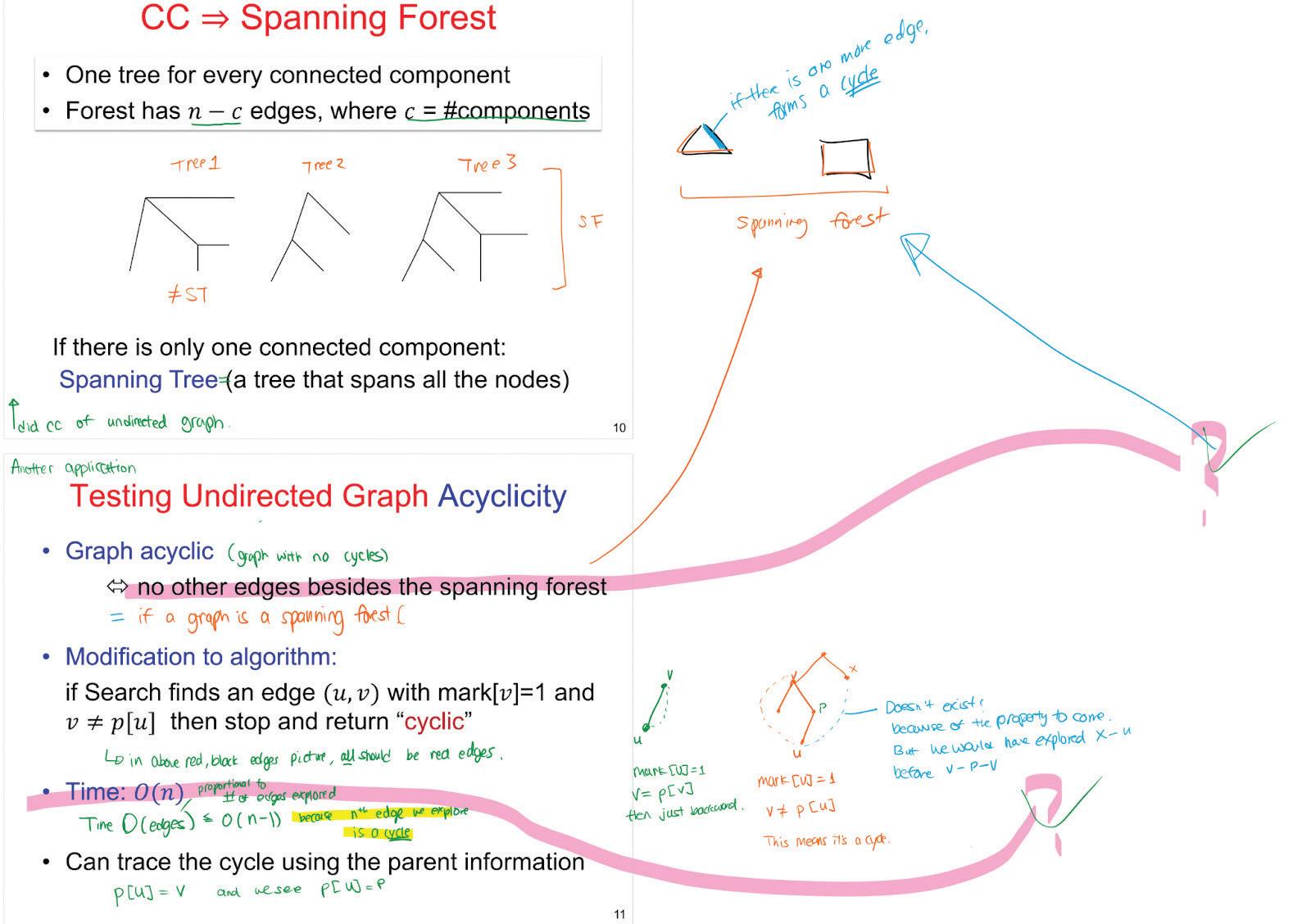
Daniel Lee
It’s Fall 2018 finals season. I am at Lehman Library sitting at the wall-end of a long table by a corner. My midterms for Jae’s AP class and Dan’s Fundies are below average, so I am frantically trying to focus.
I must have watched some action videos on YouTube. The creative domain of my brain is replaying the clips and imagining action scenes with villains. It’s getting intense and the suspense is building, but I snap back to reality and see this:

The Witness | 11
Darn.
I am the main hero of my life’s movie. However, it’s nothing flashy or showy. No flying in the air, no Time Stone, no Mark LXXXV. My fight is just to stay seated and carry on reading my notes and solving practice problems. Even still, I am a fierce warrior: I am fighting my thoughts to check Instagram, countdowns to dinner time, and the negative thoughts permeating in.
This is my fight that God blessed me with. To sit here and obey.
I am writing this piece as a senior who is in his 6th year of undergrad (I served in the Korean military for two years in the middle of undergrad) and his 8th year post-high school. I have had double the amount of time to think about my “calling” in life and opportunities to make mistakes. I write this piece to share with you that you are His Called and He is the Caller.
The very first time I became fully aware of the word “Calling” was when I was at a retreat as a senior in high school. During our prayer time, the pastor cried out to us, “Do you truly know WHO has called you?” This question just hammered me, and I felt the galactic distance between God’s bigness and my atomic self; the GOD the Creator has called me. The piece is not about what is your calling but about the how – the attitude of the Called. I have seen many Christians on campus – myself included – who become so overwhelmed by the prestige of the Calling that they fail to carry it out. Work is a privilege, and the best response to the Calling is to obey – right now. We don’t complain. We don’t boast. We don’t doubt. We don’t get ashamed. We just ride His wave.
In order to have an attitude of the Called, it is important to understand
that work is a privilege.
As a simple analogy, how would you feel if the White House called you to give you a secret mission to stop global human trafficking? This mission is only unique to you and you are designed for it. You might not have a mission from the White House, but you do have a specific mission from God. Then how cool is it that the God Almighty has prepared for you a plan since the beginning of time? It’s just like how Columbia’s mission is “For the Advancement of the Public Good and the Glory of Almighty God” as written on the facade of Low Library. You have a very, very special mission.
From Low Steps, you can easily hear numerous complaints and gossip about workload, professors, and the environment, your church or Christian fellowship friends in the midst too. This is tragic given we are in the very place that God wants us to be. We can’t dare say “none of this is useful,” “I hate Professor X so much,” and such complaints. This is not what a person who views their work as a privilege would say!
But once we understand that the life we live out now is a privilege, how do we steward that privilege? How do we best live the life of the Called?
By obedience. These are some of my stories about what I think it means to obey, and why it is so important to living out your Calling.
1. I learned that obedience means to “hold fast.”
Phillippians 2:16 says, “Holding fast to the word of life, so that in the day of Christ I may be proud that I did not run in vain or labor in vain.”
Going back to my opening anecdote, finals season of Fall 2018 was when God blessed me with a revelation
of how powerful “holding fast” is. My midterm scores were pitiful for Artificial Intelligence. So I really had to work my butt off for the final. And I wanted to be faithful and resilient in studying and taking the exam, because that’s the best attitude I can give to God. I couldn’t trust my ability, so I just promised God that I would give my best and not let anything go until the end whether that be the preparation or the test itself. On the day of the exam, I experienced the miracle of “holding fast.” There were a couple of questions that I had no idea how to solve. When I say “no idea,” I swear they were written in English but it was not English. Still, I did not give up or let negative thoughts overtake me. I blindly believed that if I didn’t give up until the end, God would bless me. If he wouldn't, I would still lose nothing. I simply held fast, trusting, and obeying wherever He wanted to lead me in that exam. Miraculously, the problems started making sense to me in the last five minutes of the exam, and I solved them all. I came out of that test site like I came out of a revival service. I was so amazed at the power of holding fast. This was a moment when I fully obeyed the Lord, trusted in Him and tasted His goodness. This wasn’t the only moment, however. There is always a great blessing when you hold tight to the end, trusting and diligently obeying God. When you lay your time down for His time and take patience, there come pleasant surprises. So hold on! Keep tugging!
2. I learned that obedience means to “stay foolish.”
In his speech at Stanford’s 2005 Commencement, Steve Jobs encouraged the graduates to “Stay Hungry, Stay Foolish.” I am not a natural public speaker, so I don’t really
12 | vol. 9, no. 2
like speaking up, let alone asking questions in class. However, as I repeatedly put myself in situations where I had no clue what I learned that day and got screwed over by more incoming materials, I recognized the need for inclass questions. What’s more, other people were equally lost. When I tried reflecting on what was stopping me from asking questions when it was much needed, it was because I was consumed in my self-image and pride to not look stupid. Yet, as someone with a prestigious Calling, I couldn’t waste my time and let my pride get in the way of giving my best to God.
I started asking a lot of questions and became that last guy who stayed after class to ask all questions. Any confusing parts were marked with a long red highlighter and answered

ones were checked with green. This always paid off and saved my struggles
to “focus on today, not tomorrow.”
Matthew 6:34 goes, “Therefore do not be anxious about tomorrow, for tomorrow will be anxious for itself. Sufficient for the day is its own trouble.”
by tenfold. Having a mindset of “I am shy” and “I am lazy” cannot be the attitude of those who think God’s calling is greater than yourself. You are capable of more when you simply obey what’s right.
3. I learned that obedience means
Fall 2021 was genuinely a time of distress and loneliness coming back from two years of army service. I didn’t have many friends left at Columbia, my brain wasn’t as plastic as before and, most importantly, I had to get a job. I was stressed mostly because I felt like I wasn’t giving my best in anything. Getting a job is perhaps one of the most important purposes of college, but why did I find myself in bed watching YouTube videos laughing out loud? Such stress just translated into more discouragement and I became less productive. The cycle continued. Upset, I texted my family chat room.
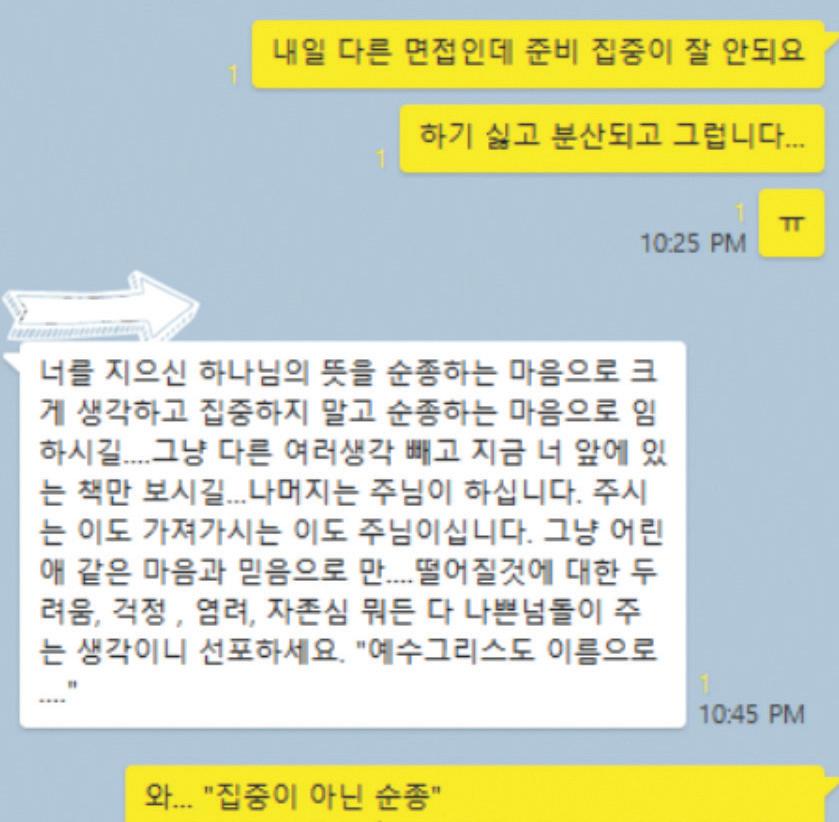
The Witness | 13
God makes it so clear that we should not expect ourselves to do things in our ability but in His ability. All he asks for is our heart of obedience.
And one line from my dad’s text profoundly shook me: “It’s not about productivity, it’s about obedience.”
Ironically, it is less about how focused I am, but more about how obedient I am. Yes, I can fail. Yes, I may need a mental break. Yes, I may just fall into laziness. But, if my heart is trying to obey the Lord’s blessing of the day, then I should not be stressed, because I am to give the best sacrifice. The amount of focus time is not the correct metric to measure how good my day is. It’s the heart of obedience and the constant fight to give Him the best offering without blemish. Productivity is an outcome not an input to my obedience. It’s merely the devil’s plot to keep me drowned in negative thoughts.
But on days you are down, still give what you have. You have given 100%.
I was feeling gloomy because I was interviewing for Software Engineering positions and didn’t feel ready. Aspiring Software Engineers would know how important LeetCode is in getting a tech job. I thought I was ready, because I had solved 100 LeetCode questions. However, as I met more people preparing for the same positions, I realized that most had done 300-400
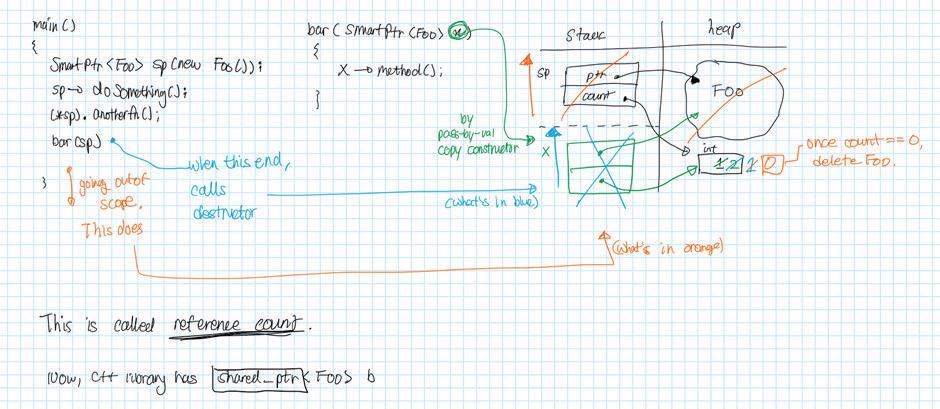
LeetCode questions. Expectedly, I miserably failed my first face-to-face coding interview with Bloomberg and lost so much hope. I felt powerless and thought I wouldn’t be able to get any job that year.
Little did I know that this was a lack of faith. On another phone call with my dad, he reminded me to read Gideon’s 300 warrior story in the Bible once more:
“The Lord said to Gideon, “You have too many men. I cannot deliver Midian into their hands, or Israel would boast against me, ‘My own strength has saved me’” (Judges 7:2).
Truly, Gideon’s story of winning Midian cannot be explained without God. Likewise, in many places in the Bible, God makes it so clear that we should not expect ourselves to do things in our ability but in His ability. All He asks for is our heart of obedience. This was the key that gave me confidence that “something” would work out and I would be able to be where God wanted me to be by the end of this recruitment season. So it’s not about how much I have focused or solved up to now. It’s not about how I view tomorrow based on my performance today. It’s about “Am I ready to just sit silently and enjoy the
privilege of following Christ?”
That day in Lehman Library, I realized that my heroic fight happened on my desk as a student. Having graduated, I see that this attitude isn’t unique to just students. This is an attitude of those who are seeking God’s work to be done on Earth through them. You just need to know that, in the Spiritual world, your fight is as cool as Marvel’s Endgame and more meaningful, even if it is as ordinary as completing problem sets in a library. We just need to keep fighting with the right heart and mindset.
If you are worried about anything at this point, stop and take peace. There is nothing you can do about the past. Just do what you need to do now. Know that you are doing God’s work. Don’t be afraid and don’t expect the outcome to be based on your productivity. Just give Him your best heart as you walk out of this reading.
14 | vol. 9, no. 2
Daniel Lee (CC ‘22) writes code for AR products like Ray-Ban Stories. He likes telling people to check them out. Contact him at jdl2194@columbia.edu
Reconciliations from a CC Essay
Jean Shin
The theme of this Witness issue is “In the Ordinary,” and what could be more ordinary than a long Monday afternoon in Contemporary Civilizations?
During one CC class, we were given time to choose an essay prompt. I wanted to write about the book of Romans and the paradox between sin and grace. To elaborate, Paul states that no one is righteous in the eyes of God because we are all under the power of sin (Romans 3:9). But through the sacrifice of Jesus Christ, He provided the atonement for our sins and freely justified us by His grace (Romans 3:22-25). Since each new sin leads to another pardon by God’s grace, more sin and trespasses would mean more grace from God. Paul concludes, “What then are we to say? Should we continue in sin in order that grace may abound?” (Romans 6:1).
Paul immediately rejects this notion. As Christians, we have died to sin, been buried with Jesus Christ through baptism, and resurrected so that we can live a new life. In this new life, we are reunited with Christ and begin living as followers of Christ. Being a follower means wanting to be more like Him—loving the things He loves, hating the things He hates, and caring for those He cares for. The Bible makes it very clear that God hates sin. As a result, we must hate sin. The logic of sinning to receive grace completely disregards our identity as followers of Christ and instead encourages a self-centered life where we want as much grace as possible.
I finished my paper with hours to spare and submitted it to Courseworks. Normally, I feel a rush of dopamine after hitting that blue “Submit Assignment” button. I shoved my laptop in my backpack and punched the Butler doors open as I usually do, but something was holding me back. Before my professor even graded my essay, I felt the heavy weight of discouragement on my shoulders.
The conclusion of my essay bothered me.
The Witness | 15
If the life of a born-again Christian means desiring to be more like Him (and this notion cannot coexist with the idea of sinning more to receive more grace), why was I constantly sinning? Why was I constantly pursuing the fun college experience and struggling to get up at 9 AM for church? Why was I prioritizing workshopping my resume over reading the Bible? Why did I care more about my reputation than my relationship with God and how He saw me?
Could I even call myself a Christian?
I cycled through overwhelming guilt and shame as I held onto my secular pursuits while trying to live a Christian life. For some reason, it felt easier to emotionally drain myself than to take a risk and allow Christ to fully take control of my life. However, given how weak our flesh is, I reached my limit.

I turned back to the book of Romans and began rereading the text. The last time I read Romans was for CC, and I realized I had read it with such a narrow perspective. In the name of writing a good analytical paper, I had overlooked Paul’s outbursts of distress. In Romans 7, Paul writes, “Although I want to do good, evil is right there with me. For in my inner being I delight in God’s law; but I see another law at work in me, waging war against the law of my mind and making me a prisoner of the law of sin at work within me” (Romans 7:21-23). Ultimately, Paul cries, “What a wretched man I am!” (Romans 7:24).
For the first time, it struck me: this is what the Bible is about. It’s not some moral code or a historical recollection of the Egyptians, Israelites, and the life of Jesus
16 | vol. 9, no. 2
Christ. It’s not here to shame me about all my shortcomings as a Christian. Rather, the living, breathing Word of God is here to speak to me. It shows me that I am not alone and that even Paul, arguably the greatest missionary of all time, had the same inner conflicts with sin.
After his moment of despair, Paul declares, “Thanks be to God, who delivers me through Jesus Christ our Lord!” (Romans 7:25). I realized, who am I to think that I can dictate my desires? My guilt and shame came from why I couldn’t force myself to enthusiastically get up early Sunday morning, read the Bible more, prioritize my relationship with God better… I always put myself at the center when in reality, it is God who delivers me through Jesus Christ. The most I could do is pray for His help and
guidance and embrace the gift of redemption He has given me.

Unexpectedly through my CC paper, I reconciled my human nature with my desire to be more like God. The Christian life is not perfectly emulating Christ but growing more like Him day by day. I know I will continue to be caught between sin and reflecting Christ, but even through these predicaments, I am encouraged to turn to God for repentance and look for Him in the ordinary things.
Jean Shin (CC'24) is a Junior in Columbia College studying Human Rights and Public Health. She enjoys café hopping and exploring NYC.
The Witness | 17
This is what the Bible is about. It’s not some moral code or a historical recollection of the Egyptians, Israelites, and the life of Jesus Christ. It’s not here to shame me about all my shortcomings as a Christian. Rather, the living, breathing Word of God is here to speak to me.
Faith Will Find a Way
Jerry Robbins
When life becomes particularly hard, we may be tempted to pray the prayer of St. Teresa, a 16th-century nun who stood mired in the mud on one of her journeys: “Lord, if this is the way you treat your friends, no wonder you don’t have many.”
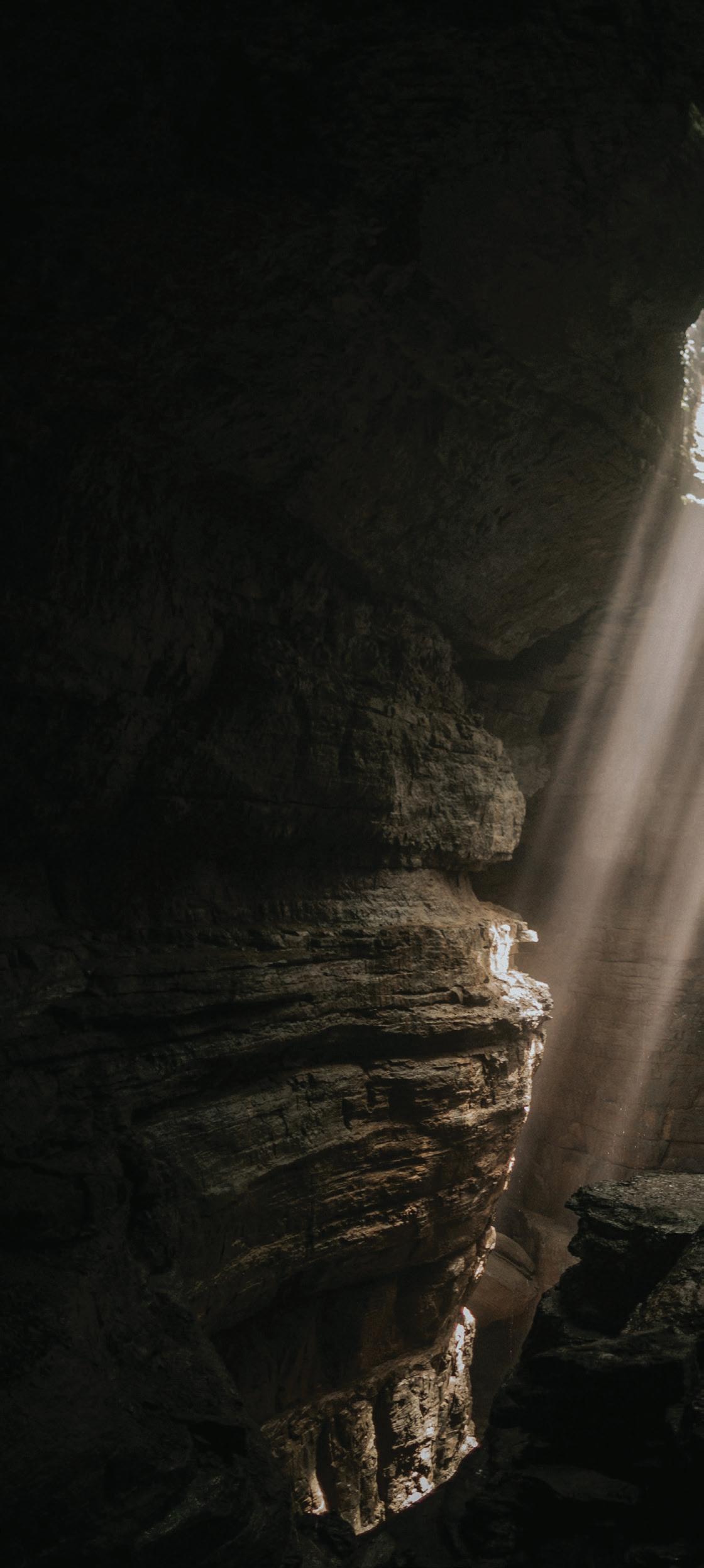
Sometimes it seems that it is just the friends of God who have the hardest road to walk. This is precisely the case when it comes to wrestling with the whys and wherefores of suffering. People who don’t believe in God do not question why God has brought suffering upon them. They do not anguish over the justice or the goodness of God. It is just those who believe in God who have the most difficulty understanding the rationale for their suffering. In addition to their immediate trials, they have the task of making some theological sense of their situation.
The experience of Job is a case in point. Job lost his family, fortune, and health. However, those losses are mentioned in only a few lines in the prologue. The bulk of the book, the major part of the poetic section, is given to Job’s lament against God. Job’s pains are always described in the context of a complaint against God. It is just his belief in God that heaps burning coals on his already intolerable misery.
There may be some problems for which God alone is responsible. The intellectual problem of evil may be one such problem. Consider the description of the wager between God and Satan at the very beginning of the drama. In a meeting of the heavenly courts, God invites Satan, whose work it is to wander the earth testing the faith of the people, to consider his servant Job, a pillar of piety. Satan contends that Job is faithful only because God is good to him. Take away God’s favor, and Job will abandon his devo-
tion. God agrees to the contest and the assault on Job begins. Job is not at all pleased with God’s part in his misery. He complains, “God has cast me into the mire, and I have become like dust and ashes… Thou hast turned cruel to me; with the might of thy hand thou dost persecute me” (Job 30:19-20). Job’s problem wouldn’t be half so bad if God was not implicated in his woes. Take God out of the picture, and a big part of the aggravation would be removed as well. The fact that God is an integral part of the picture only makes matters worse, not better!
The Book of Job suggests that believers are people who feel the pains of life more deeply than others. As well as pouring tears over their suffering and loss, they are the ones whose eyes “pour out tears to God” (16:20). They are those whose misfortune has a theological pathos added to it. They have to cope with their actual trials and the possibility that God has something to do with them. At the very least, they have to work out some satisfactory explanation of God’s role in their distress.
The problem of Job is not just a theological abstraction. There are people who have suffered in their daily lives. Some of these sufferings are because of the pains of life encountered in sickness and death. These are obvious parallels to Job’s scenario. But there is a whole level of suffering that comes out of the ordinary mundane experiences of life, faith struggling with God in the trenches of ordinary living: the single mother dealing with inadequate resources for raising her child, the fatigue of the student unable to find the strength to keep up his studies, the father with a son who will not communicate with him, the pious person anguishing over the loss of his or her faith. These people often cry to God for help to cope with their problems. The story of Job, like Abraham’s complaints and the Psalm writers’ laments, is written in ordinary lives, lives of people “wrestling with God” (Genesis 32:22-30) to help them keep their faith.
It is just those who believe in God who have the most difficulty understanding the rationale for their suffering.
18 | vol. 9, no. 2 18 | vol. 9, no. 2
One does not have to look far to find Job moments in life today. Perhaps you have experienced one of these moments yourself. If you have ever been forced to stop your prayer because of overwhelming, unresolved grief at the loss of a friend, you have had a Job moment. If you have ever wondered why bad things happen to good people, you have had a Job moment. If you have ever cursed God because circumstances of your life have become unbearable, you have had a Job moment. Whenever you are tempted to cry out to God because of the horrendous injustice in the world, you are on the brink of a Job moment.
The believer can do several different things to relieve the tension in the situation. Obviously, if God is the source of the tension, one can give up belief in God. Many people coming out of the monstrous evil of the Holocaust chose that solution. Or one can modify the concept of God so as to spare God the responsibility for evil. We can say God is limited in power or is not able to rescue us from evil. Many sophisticated thinkers have chosen that solution. However, both of those maneuvers are costly, because in eliminating God they have removed a possible resource for coping with insistent suffering. Like the fellow who swept his house only to have seven new spirits arrive, a stance without faith in God is a recourse worse than our original situation.
Fortunately, Job’s response to his situation did not eliminate God from the picture. Though put down by unrelenting suffering, Job never lost his faith in God. In the prologue, Job is presented as a model of trusting faith. “Naked I came from my mother’s womb and naked I shall return; the Lord gave, and the Lord has taken away; blessed be the name of the Lord” (1:21). Whatever his circumstances, Job does not waver in his faith. His suffering does not lead hIm away from God. If anything, it drIves him to seek a better understanding of God’s ways: “I will say to God, Do not condemn me; let me know why thou dost contend against me”(10:2).
Job is a picture of all honest belief. If we are realistic about our situation, we cannot deny the presence of horrendous suffering in the world. At the same time, faced with a potentially worse scenario without God, we hesitate to give up our faith. One choice remaining is the stance of Job. He believed in spite of the suffering he endured. He believed without knowing all the answers, without perfect “understanding” of the workings of God (28:12,13). He is the archetype of the person who, for the sake of a compelling hope in God, is content, for now, to see through a glass darkly.
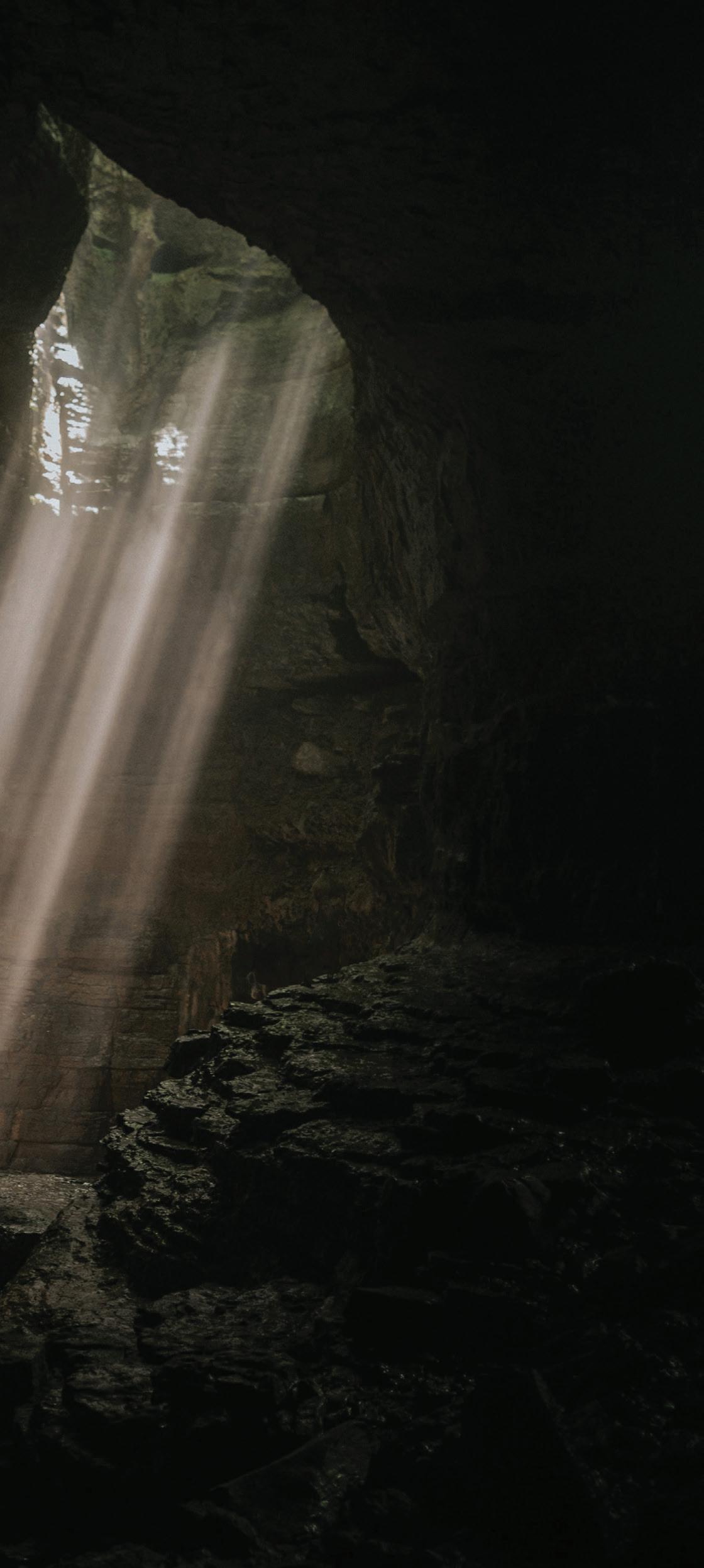
Like the fellow who swept his house only to have seven new spirits arrive, a stance without faith in God is a recourse worse than our original situation.
The Witness | 19 The Witness | 19
Jerry Robbins graduated from Gettysburg College and Yale Divinity School, and earned his Ph.D. at the Hartford Seminary Foundation. He has served in campus ministry for over three decades and earned the Joseph Sittler Award for Writing in 1998.
Neither Wish Nor Wishful Thinking: A Theology on the Prayer of Petition
Benjamin Brake
Prayer is unavoidably central to the Christian life. In fact, it is utterly practical and encouraged by the Scriptures to be undertaken as often as possible (1 Thessalonians 5:17), both in private (Matthew 6:5-8) and with fellow believers (James 5:16).1
If for no other reason, then, the Christian prays as an act of obedience. That said, cursory reflection reveals plenty of potential uses for it. As exemplified in the Lord’s Prayer (Matthew 6:9-13), prayer’s content is widespread, extending from matters of thanksgiving, reflection, confession, and, most pertinent to this essay, requests for fulfillment of one’s desires.2
Yet, prayer can easily be misconstrued in both thought and action (Matthew 6:5). Thus, in order to properly delineate the Christian conception of prayer, it is first necessary to investigate some rudimentary Christian theology of God, as well as some erroneous formulations of the act.
Importantly, the Christian prayer is ultimately directed towards God (Philippians 4:6-7).3 As conceptualized
1 Admittedly, this essay does not give proper attention to the communal role of prayer, which deserves further examination. Its absence here should not be construed as any value judgment.
2 Please note: these delineations in types of prayer are hardly concrete.
3 This is true across the historical Christian tradition, whether directly or indirectly. Admittedly, for denominations which hold robust traditions of prayer to saints – such as Roman Catholicism and Eastern Orthodoxy – certain prayers are often indirectly related to God. Nevertheless, insofar as saints are meant to be mediators to God on behalf
in the monotheistic framework of which Christianity partakes, this God is conceived as the unrivaled Creator of all things, the progenitor of all being. Indeed, to try to better capture the transcendence of God as distinct from primitive polytheistic conceptualizations, it may be helpful to clarify Him not as “a being” per se, but as the very source of “Being.”4 And regardless of which specific theological variation is examined, there is a common recognition across historic Christian theology of God’s supreme preeminence over His creation, His ability to create simply by virtue of His will. Particularly relevant to prayer is God’s eternal and immutable qualities. His eternality is existence outside of time, a quality admittedly incomprehensible for the temporal human. For much of Christian intellectual history, this eternality has been expressed as a perpetual present tense5 which, even if not literally true,6 is a plausibly useful analogical tool. In any of the one who prays, the ultimate source of power to answer the prayer is still recognized to reside in the sovereign God (See St. Basil's Letter 360, for example).
4 Hart, David Bentley. The Experience of God: Being, Consciousness & Bliss.

5 For examples of God’s eternity analogically expressed as a perpetual present-tense, see Augustine’s Confessions: Book XI; Boethius’ Consolation of Philosophy, Book V, Chapter VI; Anselm’s Proslogion, Chapter XX.
6 Scholastic philosopher Aureoli insisted on the essential incomprehensibility of eternity and disliked the pervading use of common present-tense as an analogue, such as by the likes of Aquinas. See Frederick Coplestone’s A History of Philosophy, Book I, Volume III, Chapter II: Duradus and Peter Aureoli. But in any case, Augustine seems to have sufficiently answered this issue centuries earlier in Confessions, Book XI.
case, speaking in temporal terms, there is no point in time that God can conceivably be lacking. For similar reasons, He is also immutable, since presumably no created contingent things possess the efficacy to alter that which sustains and exists beyond them.7 Also, and acutely relevant to Christian prayer, God is omniscient and thus able to hear our prayers, and He is omnipotent and thus able to fulfill those prayers. It is important to first distinguish prayer from “wish-granting.” The former cannot be reduced to the latter without fundamentally misconstruing prayer and the relation between God and the one who prays. That is to say, the Christian God, properly conceived, is no mere genie. Granted, the Christian framework dares not deny the possibility of God’s answering the prayers of those who ask (insofar as the Creator and Sustainer God would presumably possess the efficacy to do so). Yet, unlike the mythic genie, the Christian God is not subject to the whims of the one who prays. Furthermore, while the omniscient God hears the prayer, any divinely related action corresponding to the prayer is not causally dependent upon the one who prays. In other words, the person petitions to God, but does not command Him. This accords with the basic theology outlined above and is also evident in the Christian Scriptures. The language of relation between God and the petitioner is of God
7 To avoid unwanted philosophical trouble, we will want to qualify God’s immutability as applying only to His “intrinsic” properties, rather than His “extrinsic,” relational properties. See the Cambridge intrinsic/extrinsic property distinction for more on this.
20 | vol. 9, no. 2
as Lord and petitioner as subject (James 4:7), even slave (Romans 6:22), since God is sovereign over all His creation. In terms of prayer, God is imbued with power, will, and authority; the petitioner with weakness, unattained desire, and dependency. Prayer, at its greatest, is simply a request from the weak to the powerful.

On the other hand, it is also erroneous to reduce the Christian conception of prayer to mere “wishful thinking” with little to no expectation of recognition from God. Importantly, there are key intellectual traditions of theology and cosmology which assist in this reductionist view of prayer, some of which are symptomatic of modernity in general. This can be seen in the once popular Enlightenment deist watch-maker theology – more akin to Plato’s Demiurge than the biblical Creator ex nihilo – where God created reality but does not sustain it, in which the affairs of contingent reality are supposed to self-perpetuate apart from Him.8 Perhaps more relevant to our contemporary society, where explicit theology may admittedly be less relevant to popular imagination, there holds a pervasive implicit cosmological assumption that the universe is essentially meaningless, unmotivated, and strictly material – as categorically distinct from pre-modern conceptions of a cosmos imbued with meaning, hierarchy, and intertwined with a spiritual realm – such that prayer’s assumption of transcendent “supernatural” capabilities is considered suspect at best.9 Within such milieu, if God is entertained in our imagination, He must be kept at a distance. Furthermore, there is always the temptation, not necessarily unique to modernity, to construe God as foreign, impervious, and/or indifferent to the actions of humans. One iteration is found in Nietzsche’s preferred
8 For the classic Deist watch-maker analogy, see Paley, William. Natural Theology or Evidences of the Existence and Attributes of the Deity. The Attributes of Deity from the Appearances of Nature.
9 Smith, James K.A. How (Not) to be Secular: Reading Charles Taylor, Chapter 3.
God, who, though fully capable, simply does not “give a damn” about the silly affairs of mortals.10 And another iteration is found in the Greek Fates, unified and sovereign, but ultimately determining human history despite human agency.11
Such frameworks can contribute towards misconstrued prayer for even the most devout religious person, stripping God of immanence (to the degree He can even be deemed relevant to our existence). Subsequently, these underpinnings can easily entail a dangerously fatalistic, and often nihilistic, approach to prayer. Prayer is reduced to mere “wishful thinking,” treated as a last-ditch effort towards a God (or Universe, or Soul, etc.) so distant from us as to be non-existent.12 This prayer is a message in a bottle, a letter sent into the Void with no real expectation of an answer. The “petition” becomes tongue-in-cheek, since the petitioner considers themselves so distant from that foreign being, “God.” Whether believed as real but distant, guessed as real but uncertain, or doubted to even exist, this God is too far away for prayer to be taken seriously.
For similar reasons, prayer’s purpose must also be distinguished from “self-talk” or internal reflection. In fact, prayer as self-talk is just a particular characterization of prayer to the Void, where the Void is a mirror onto the self. Admittedly, such self-talk may be all fine and well with regards to personal deliberation and psychological growth. But it is not prayer, since no real petition is sent, and so no advancement has been made in the relationship between the servant and Lord.
Of course, all these variations are
10 Nietzsche. Genealogy of Morals: Third Essay, Section 22.
11 Iliad. Book VI.579-584.
12 Importantly, this distance between God and humanity is not a distance of transcendence properly conceived, but of indifference. The transcendent Christian God not only can, but must, engage with his contingent creation to sustain it. Rather, the deist God, or any comparable deity, is simply not relevant to actual lived reality, or chooses not to be.
The Witness | 21
incompatible with the Christian framework for prayer, as quickly demonstrated by reflection on the Christian conception of God as Creator and Sustainer. To reiterate, the Christian God not only created all contingent reality ex nihilo but also sustains all things through Himself as its source. He is a God forever present, and necessarily so. Even as we may speak of His transcendence, we cannot avoid but speak of His immanence. With such a God, even the “unanswered” prayer of the petitioner is still unavoidably heard. (Indeed, even the unrealized prayer of the heart, even if not yet known to the one who prays, is still heard by the omniscient God!) In the requests of prayer, the one who prays is speaking with the one who hears.
As far as practical agency is concerned, proper Christian prayer must be conceived as real petition (Psalm 86:6), an intentional request towards that which is recognized to be ever ready, capable of response, and possessing authority in Himself. Thus, prayer is neither a wish to a genie, nor wishful thinking sent into the Void or onto the self.
All this said, it is painfully obvious from our lived experience that we do not know the mind of the Eternal God, and, recalling that God is no genie, and that he already knows all things, including our very thoughts, we cannot even expect to influence this Immutable God towards our will through prayer. Thus, even if faith may offer us theoretical

confidence that God hears our prayer, we still lack any certainty with respect to the status of our particular petitions, and may subsequently question the legitimacy of the practice altogether. What, then, is the practical application of prayer for the human who is both ignorant of knowing and incapable of changing God’s eternal will?
Danish philosopher Soren Kierkegaard in his Upbuilding Discourses in Various Spirits argued against rashly dismissing prayer on such grounds, insisting instead that prayer’s fundamental role is in its transformation of the one who prays: “The prayer does not change God, but it changes the one who offers it. It is the same with the substance of what is spoken. Not God, but you, the maker of the confession, get to know something by your act of confession.”13 While God is immutable, omniscient, and eternal, the human who prays is clouded with confusion, often “double-minded” regarding motivations (James 4:7-8), constantly balancing conflicting values. This “double-mind” is primarily because we are temporal beings who often direct our volitional action towards earthly motivations of this life which cause us to deviate from
13 Kierkegaard. Upbuilding Discourses in Various Spirits: An Occasional Discourse: On the Occasion of a Confession: Purity of Heart Is to Will One Thing. Chapter 2.
Please note: Kierkegaard’s point is especially obvious in prayers of explicit confession, but presumably extends to prayers of petition as well, if we even feel a need to draw a meaningful distinction between them.
the simple Good found in the unified, unchanging, eternal God.14
However, prayer offers resolution on precisely this point, insofar as it is essentially intentional, direct relationship with God. This requires the double-minded person facing the unified God directly, which in turn necessitates intentional change in the double-minded person. Such a change, as made possible by prayer, is at least conducted internally in the self, if not externally.
Importantly, this intentional relation of petitioner to God presupposes faith (see Hebrews 11:1), faith at least in the existence of God, and additionally that God bears real power on the relevant matter (i.e., the prayer is “petition” and not “wishful thinking”).
As far as practical agency is concerned, this requires a volition of the petitioner, a committed willingness to engage and realign with God. Only then can there be resolve for the double-mind. In borrowed Kierkegaardian terms, such requisite faith concerns “the individual, as the individual, [standing] in absolute relation to the Absolute [God].”15 This volitional faith is direct, explicit, and entails intentional relation.
To reiterate, the Absolute is wholly believed by the faithful petitioner to be real and present. In such faithful prayer, there is no mediation separating the individual petitioner and the
14 Kierkegaard. Upbuilding Discourses in Various Spirits: An Occasional Discourse: On the Occasion of a Confession: Purity of Heart Is to Will One Thing. Chapter 3.
15 Kierkegaard, Fear and Trembling, Problem II.
22 | vol. 9, no. 2
Absolute God, nor any distance kept between them.16 There is unavoidable direct immanence, the individual and God face-to-face in relation. Borrowing from existentialist philosopher Buber, this relation can be termed as “I-Thou,” as opposed to merely “I-It.” While the I-It relation would assume an individual-object distinction, whereby the object is particularized, qualified, and objectified, the I-Thou treats the Thou as personal, holistic, and also eternally present, atemporal, and aspatial.17 Simply put, an I-It relation is objectification of the other, such as in the case of “wishful thinking”; the I-Thou is true relation, such as in prayer of petition. Importantly, Buber explores the I-Thou in various settings, and considers human relations as microcosms for the ultimate I-Thou relation with God.18 In any case, the I-Thou relation ultimately finds expression in God, who is the “Eternal Thou.”19 If prayer is to be taken seriously, we must treat God as the Thou of our prayers not metaphorically, but actually.
The paradigmatic prayer of petition is found in Christ at the garden of Gethsemane, the night of His betrayal. On this night of despair, Christ petitions His Father God to relieve Him of His impending torture and crucifixion. Crucially, Christ’s petition is utterly sincere. It is clearly done from a position of volitional faith in the power of His Father, and subsequently in direct intentional relation with the Immanent Thou. Yet, even as He recognized the oncoming suffering, even as the Son petitions to the Father that He may be exempt from such a fate, Christ nonetheless concludes, “not my will, but Yours be done” (Mark 14:36). Indeed, the Gospel of Matthew states that Christ made this
16 For Kierkegaard, this faith – exemplied in Abraham as the Knight of Faith – undermines the Hegelian system common in his day, which had posited the universal Ethical as the unavoidable mediation between God and human. For more on this, see Fear and Trembling.

17 Buber, Martin. I and Thou, Book 1.
18 Buber, Martin. I and Thou, Book 2.
19 Buber, Martin. I and Thou, Book 3.
same prayer three times, despite His emotional torment, and each time with the same conclusion: He surrendered His personal desire to the Father’s will (Matthew 26:36-56). In this prayer, Christ believed God could provide Him His petition, yet simultaneously strove to align His desires with God’s will. Put another way, Christ directs His own desires towards that of the Father, fulfilling His proper relation to the Thou as servant to master, and resolving any threat of double-mind by intentional relational submission.
It is crucial to read Christ’s prayer in full, both in His sincere petition and subsequent surrender of it. To otherwise read Christ’s petition as “wishful thinking,” as a sort of surrender to fate, is to unduly ignore the first aspect of the prayer, wherein He sincerely petitions to His Father who hears Him. On the other hand, to read Christ’s request of avoiding suffering as a mere “wish” is to overlook the immediate follow up of Christ’s surrender, “not my Will, but Yours be done.” Christ’s prayer is both and neither; it is the prayer of petition par excellence. And, importantly, it is only because Christ views the Father as the Eternal Thou, the Absolute, the Creator and Sustainer, as both transcendent and simultaneously immanent, that such prayer is capable of coherence.
Christ thus acts as our exemplar in the practical act of prayer. Any prayer of petition, whatever its degree of significance, regardless of its outcome, whether we receive the answer we hope for or not, ought to follow this pattern of intentional relation of submission to God as Eternal Thou. This is the prayer of petition properly conceived.
Benjamin Brake (CC'24) is a junior in Columbia College currently studying Economics and Philosophy. He is enjoys discussing topics of religion, philosophy, and politics. Feel free to contact him at bdb2135@columbia.edu.
The Witness | 23
Lilies of the Field
Grace-Elleda Gonzalez
My dear,
I wish you could see what I see when I look at you I wish you could see your beauty
How you were created so intimately and perfectly How you are more glorious than a lily of the field
I wish you could enjoy each new day and I wish you didn’t dread the next How you could run through fields with a smile on your face How you could trudge through work with joy
I wish your pain didn’t hold you captive I wish your mind wasn’t a battlefield How different your life would be How your struggles would change
I wish you knew you had something to live for I wish your pain could be taken away
How your life would have newfound hope

How you would see the sun streaks flowing in your life
I wish even the hard days were tinted with hope I wish your strength wasn’t your own
How you would rise above the world
How you would run instead of walk
I wish it wasn’t so tempting I wish it didn’t have such power over you
How you could live free
How you could run away


I wish you knew their love was nothing I wish you knew His love was everything

How you could feel the warmth of His embrace How your soul would be filled with peace
I wish you saw every moment as a new mercy because I wish you truly knew that mercy has been given How you could take steps of confidence How you would finally be alive











I wish you were a friend of Jesus He is the only hope I can point you towards
Grace-Elleda Gonzalez (CC'23) is a senior in Columbia College currenty studying Economics and Mathematics. For any commentary about her poem, you can reach her at geg2139@columbia.edu.
Photos by Annie Son.
How to be the GOAT at Columbia
Chase Chumchal
Itook my first steps down College Walk and onto campus the day before NSOP 2019. It was my first time experiencing the transition from the narrow, tree-lined path into the openness of campus. Beautiful buildings, patches of green grass, and large tents seemed to appear out of nowhere.
Walking out into the openness of campus, my eye was soon attracted to Butler Library. A green-roofed, neo-Classical library with several Ionic columns, Butler presents its spectators with both a sense of architectural glory and a strange list of Greek and Roman names inscribed across the top.
bolize a Columbia student’s metaphorical college walk. Whether by a teacher, parent, or television, we’ve often been taught that the road to greatness is paved with ivy, and if we play our cards right and get straight As, then we can achieve a great name ourselves. When admitted into a prestigious university like Columbia, our chances of showing up as one of Columbia’s “Distinguished Alumni” — the honored name inscriptions that appear when doing a Google search of the school — are much higher.
Despite these hopes for greatness, when the freshmen finally move from College Walk into the depths of the Butler Stacks — dark, windowless floors at the core of Butler filled with shelves and study spaces — they might find penned inscriptions that begin to peel away at an idyllic view of pursuing greatness.
My first steps down College Walk, I couldn’t even pronounce most of these names. But I would soon discover how central they are to the Columbia experience and academic culture. Many of these thinkers are read throughout the Columbia College Core Curriculum — they are the creators of “masterpieces.” They are the Great Thinkers of the past, those whose writings are foundational to Western society (which is why, perhaps, they are inscribed above the American Founding Fathers). As the largest inscriptions on one of the most visible and beautiful buildings on our campus, their intellectual greatness is identified with the university.
As a space where great individuals are publicly honored, Butler can sym-
In the Stacks, I once came across the inscription, “Pain is temporary, GPA is forever.” Or, even more unsettling, crossed out on a bulletin board:
LIFE IS HELL + I WANT TO DIE!
Of course, penned inscriptions in the Stacks are not exclusively, or even primarily, despairing. And penned inscriptions can be found elsewhere around campus. For example, in a collection of anonymous inscriptions (likely from multiple hands) on a cold, cement stairwell in SIPA, one can more clearly see a connection between despair and pursuit of the great life.
WORK WORK WORK WORK
THIS SCHOOL BREAKS YOU I’m feeling SAD.
GIVE THE F*** UP
With such cries of misery, there is a dissonance between the glorious visual scene of Butler with its great names, a monument that testifies to the greatness Columbia offers, and the actual lived experience of its students who might themselves be in pursuit of the great life.
Many students know firsthand the hidden cost of the Columbia great life. Late nights, early mornings, overwhelming course loads, depression and anxiety over internships, resumes, grad schools, and the envy and shame that can often accompany all of this. If one’s college walk is defined by WORK WORK WORK WORK, then maybe, connections willing, they can make it to Wall Street, Capitol Hill, or Silicon Valley. At Columbia, to be great is to be prestigious, and despair is a small price to pay for a spot at the top.
From these few penned inscriptions found around campus, it’s important to ask: is pursuing greatness at Columbia the road to glory or the highway to hell? Homer, the first great name on Butler and the Lit Hum syllabus, might agree with the latter.
Many Lit Hum students will learn about the Homeric trope kudos. Kudos is an ancient Greek word that we use
26 | vol. 9, no. 2
HOMER • HERODOTUS • SOPHOCLES • PLATO • ARISTOTLE • DEMOSTHENES • CICERO • VERGIL
today when we say the phrase “kudos to you.” It is often translated to mean “glory,” and is referenced throughout the two epic poems attributed to Homer.
In ancient Greece, kudos was a public and visible reality, an ideal that the Greeks pursued and even died for. In Homer’s Iliad, Achilles himself decides that it would be better to die and gain kudos than to live without it.
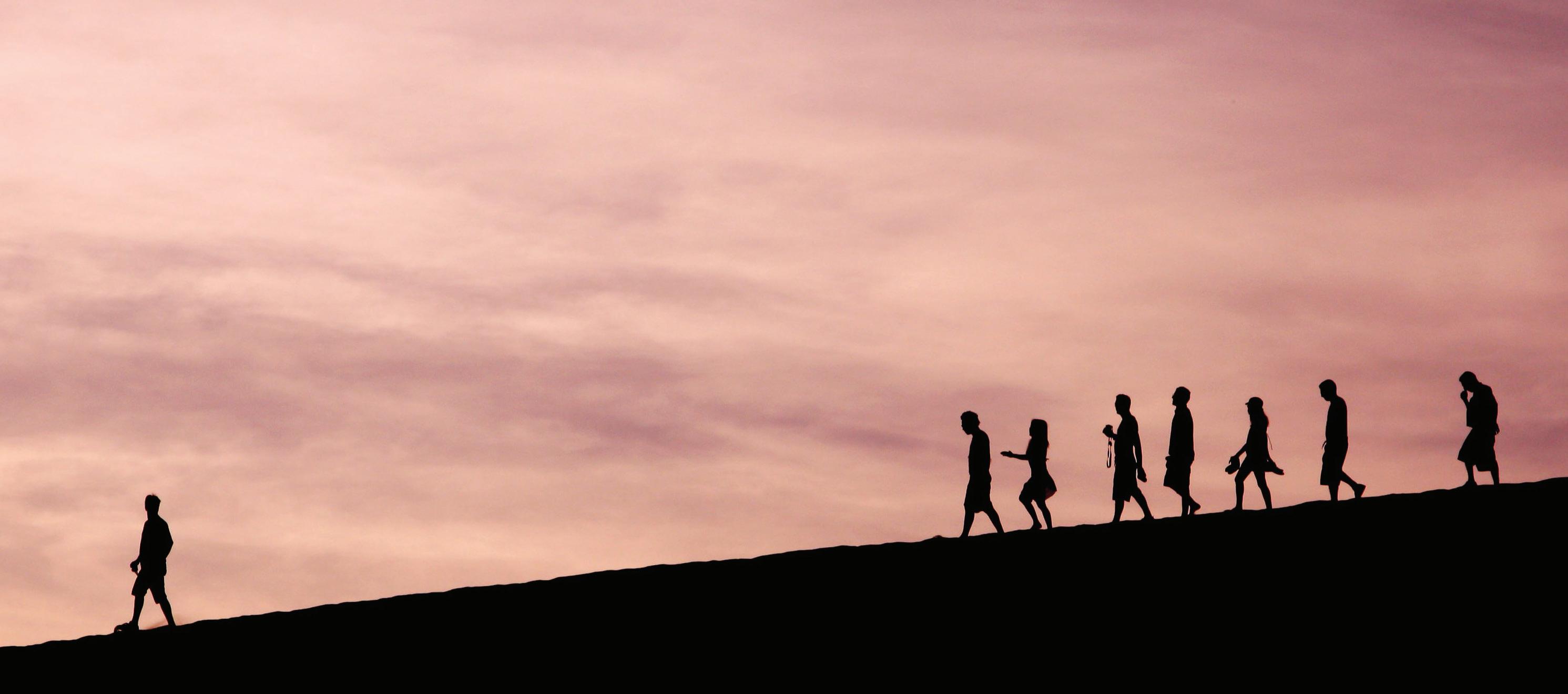
Yet, in the Odyssey, when Odysseus travels into the Underworld and there meets Achilles’ spirit, Achilles says that he would rather be alive and plowing someone else’s land — in other words, to be a servant and an Outis, a Nobody — than have all the clout and praise that comes with being king of the dead:
I would rather follow the plow as thrall to another / man, one with no land allotted him and / not much to live on, than be a king over all the perished dead.1
Kudos is seen for what it is. It is an illusion, a Sirens’ song, that once grasped, reveals it never was, never is, and never will be. And now dead and
1 Citation: Od., 11.489-91; Lattimore transl. This detail on Achilles' change in perspective was pointed out by Dr. Deborah Steiner in an Intermediate Greek II seminar.
miserable in the Underworld, Achilles rejects kudos.
When it comes to the pursuit of greatness, Achilles sees a disconnect between appearances and reality. To Achilles, death makes human greatness ultimately futile and worthless. Who cares about having one’s name live on when you can actually just live on?
If Achilles is right, and the greatness we achieve is ultimately futile and worthless, wouldn’t it be best to, like Achilles, reject the pursuit of it altogether? Or, is the problem not in pursuing greatness, but how it is pursued? A Christian interpretation not only affirms that it is good to pursue greatness, but that the answer to achieving true and lasting greatness lies in what Achilles saw as the rejection of it: a life of servanthood.
The idea that servanthood leads to greatness seems like a self-contradiction. After all, servants don’t get their names inscribed on giant libraries, and who among the Columbia Distinguished Alumni calls themself a servant?
However, for those who have eyes to see and ears to hear, Christ stands as the ultimate figure of greatness. At a university known for its great names, Christ has the “name that is
above every name.”2 He is the exalted one, the radiance of God’s glory, and the greatest among us.
And He was a servant to all.
The Son of God took on the “form of a servant.”3 He ministered to the poor and afflicted and had no place to lay His head. He washed the feet of His followers and told them to do the same. Through the crucifixion, He gave His body and blood for the sin of humanity. He served both God and sinners, even to the point of death.
Christ taught and embodied that, in the kingdom of God, it is through condescension that comes glorification. If we want to truly become great, we must become like Him — a servant. After all, the humble will be exalted, the last will be first, and those who lose their life will gain it. 4
Instead of self-elevation, a life
2 Philippians 2:9, ESV.
3 Philippians 2:7.
4 Matthew 23:12, 20:16, 16:25.
The Witness | 27
If we want to truly become great, we must become like Him — a servant.
of Christlike servanthood is one of self-sacrificial love, which normally looks like a kind of persistent and ordinary self-givenness. Christlike servanthood lowers the self to elevate the other, rather than lowering the other to elevate the self. It fosters humility rather than pride. And in place of human praise, its ambition is wrapped solely around the approval of God, in the hope of those words, “Well done, good and faithful servant.”5
While the appearance of servanthood is more plain than prestigious, the hope is eternal participation in glory. By imitating Christ’s servanthood, we participate in the very life and joy of God the Son — in part now, and fully in the age to come. The greatness of servanthood is found in this participation, in our conformity to the image and destiny of Christ. As God glorified His Son, so will He glorify His children who love and serve Him.
To seek the greatness that Christ gives will require treading on a different college walk at Columbia. This alternative college walk will shape how we relate to others and to our work. To be a servant requires belonging to others for their good and benefit, to give the self in sacrificial and often hidden ways. It shares in Christ’s life with fellow believers, and invites people into this participation and belonging. For me, being a part of a campus ministry has helped me serve, participate, and belong in this way. While I personally have been a part of Christian Union Lumine at Columbia, there are many campus ministries that accomplish this, such as Reformed University Fellowship (RUF), SOON Movement, and Columbia Catholic Ministries (CCM), to name a few.
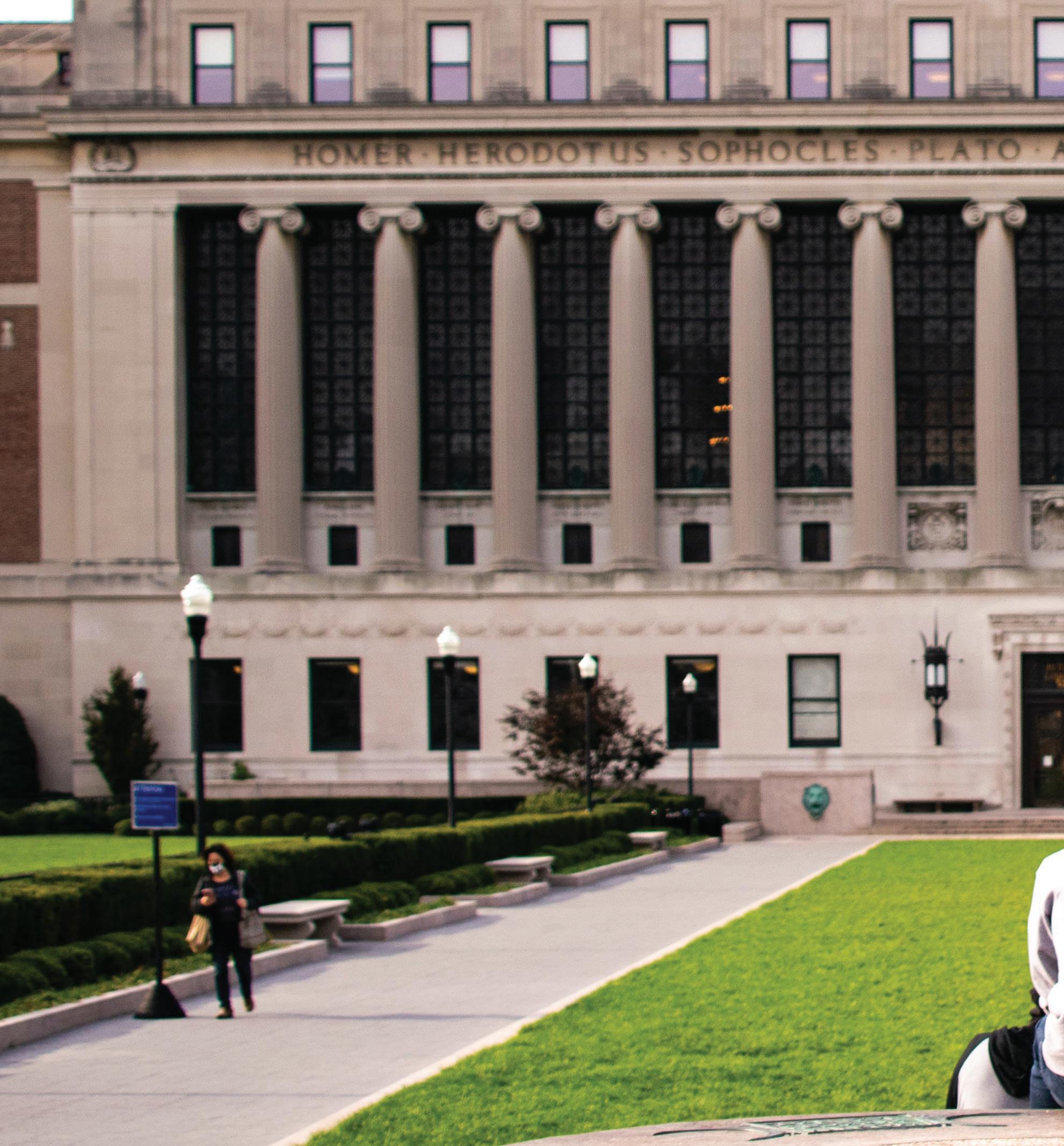
Recognizing that the Master to whom we are accountable is ultimately our Father in heaven, the purpose of our work will move outside of the self. This can be incredibly freeing. God cares about our love and faithfulness, not our preeminence over others. We can
5 Matthew 25:21.
28 | vol. 9, no. 2 FOR • THE • ADVANCEMENT • OF • THE • PUBLIC • GOOD
trust that even the so-called “insignificant” tasks and vocations, when done faithfully, are considered great in the kingdom of God. The inverse is also true: even the greatest accomplishments, when done unfaithfully, fail to be great. For example, while to some it may seem beneficial to break the Honor Code in order to uphold a good grade, a life of Christlike servanthood requires the preservation of truthfulness and promise-keeping, even when it costs one their GPA.
At Columbia, when pursuing the greatness that Christ offers, while one can admire Butler and its great names, it will fail to symbolize this alternative college walk. For a library inscription that accomplishes this, one will need to turn in the opposite direction and look at Low Library (if the tent isn’t up). On it is the reason for Columbia’s founding and the ambition of true and lasting greatness: •
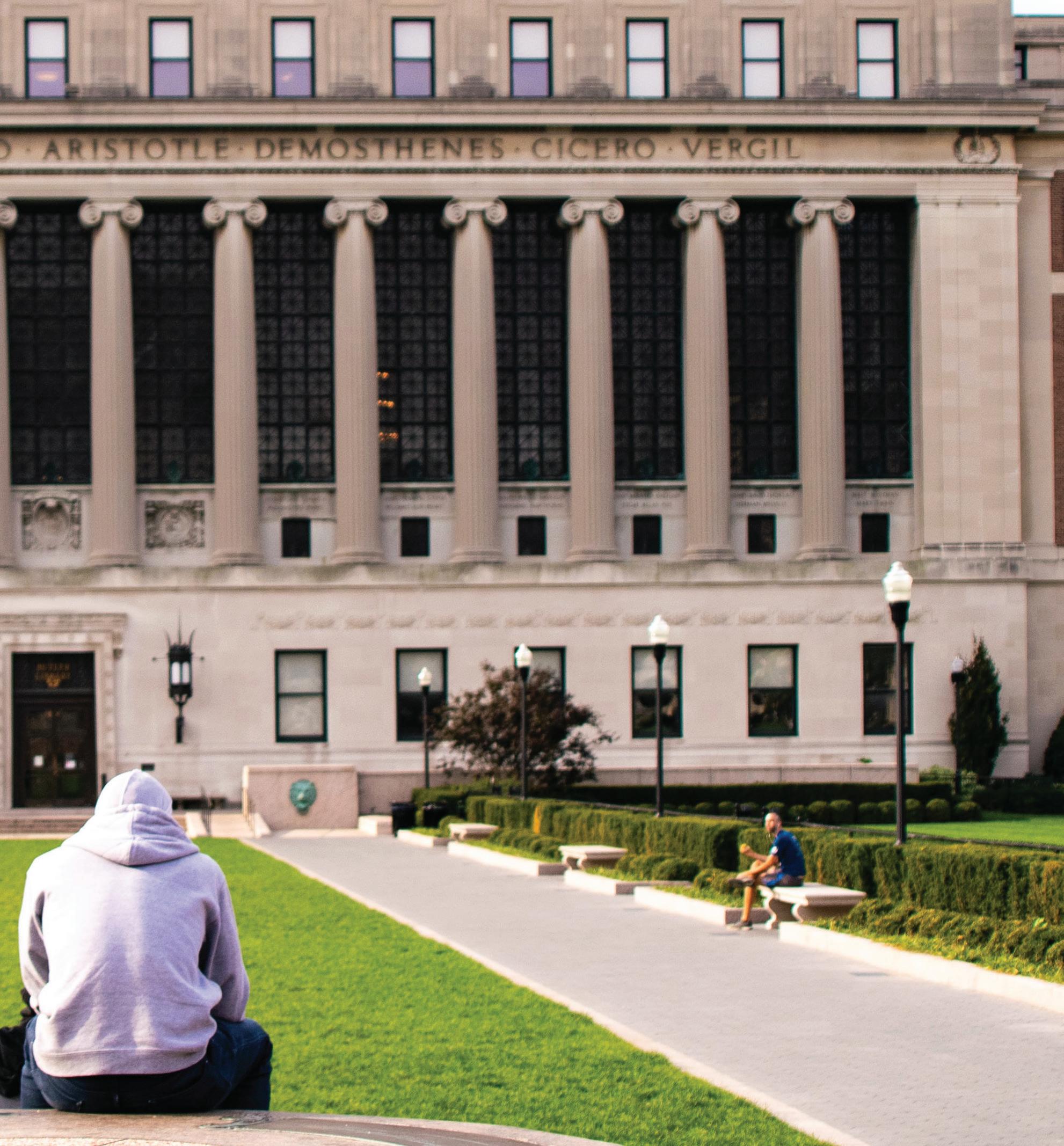
The Witness | 29
FOR • THE • ADVANCEMENT • OF • THE • PUBLIC • GOOD • AND • THE • GLORY • OF • ALMIGHTY • GOD •
• AND •
•
•
•
Chase Chumchal (CC‘23) is a senior in Columbia College studying English literature.
GOOD
THE
GLORY
OF
ALMIGHTY • GOD
"Peace I leave with you; my peace I give to you. Not as the world gives do I give to you. Let not your hearts be troubled, neither let them be afraid."
John 14:27
30 | vol. 9, no. 2
The Witness | 31
For more information,
Blog: www.columbiawitness.org
Facebook: facebook.com/columbiawitness
Instagram: instagram.com/columbiawitness
Email us: columbiawitness@gmail.com









































